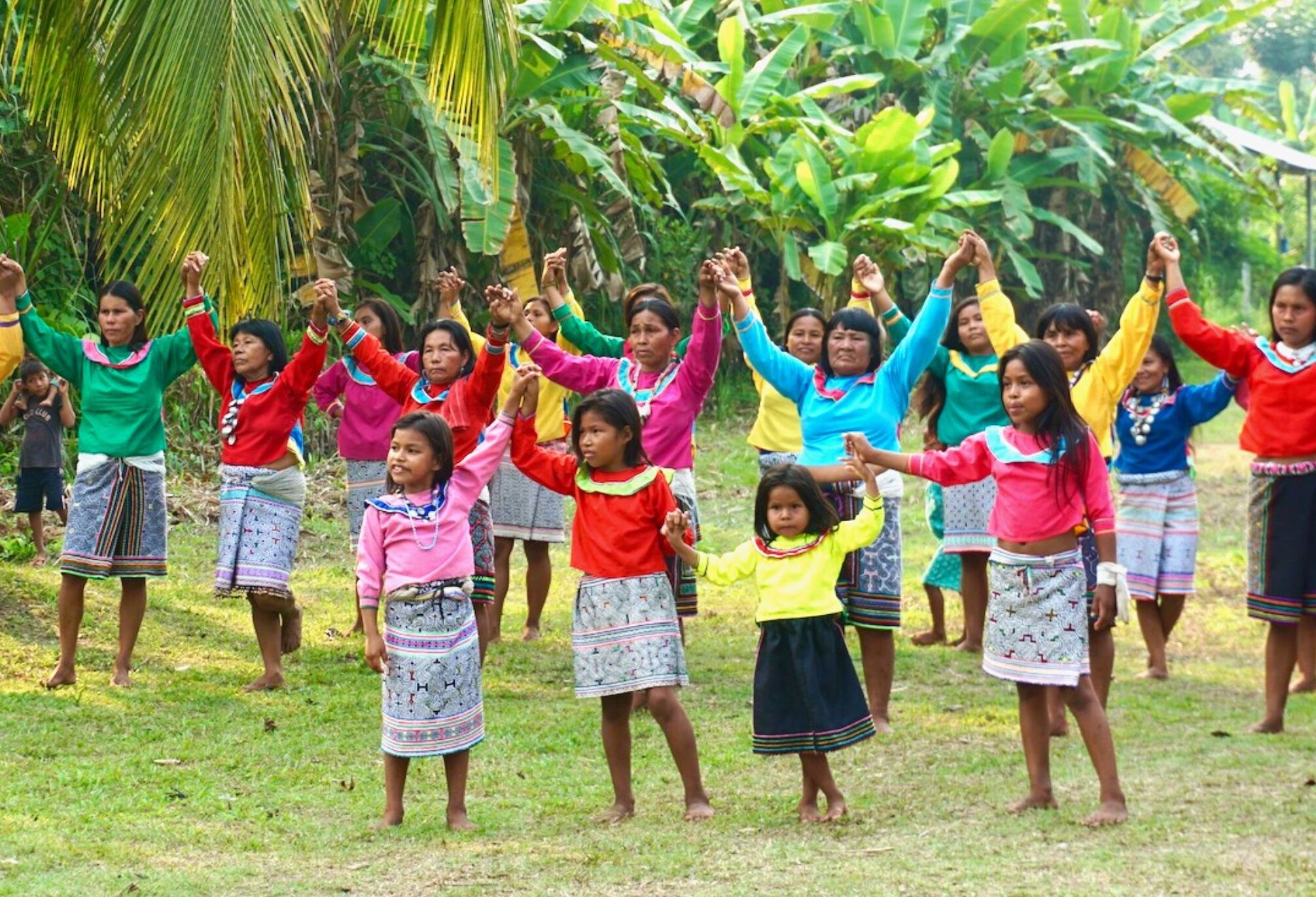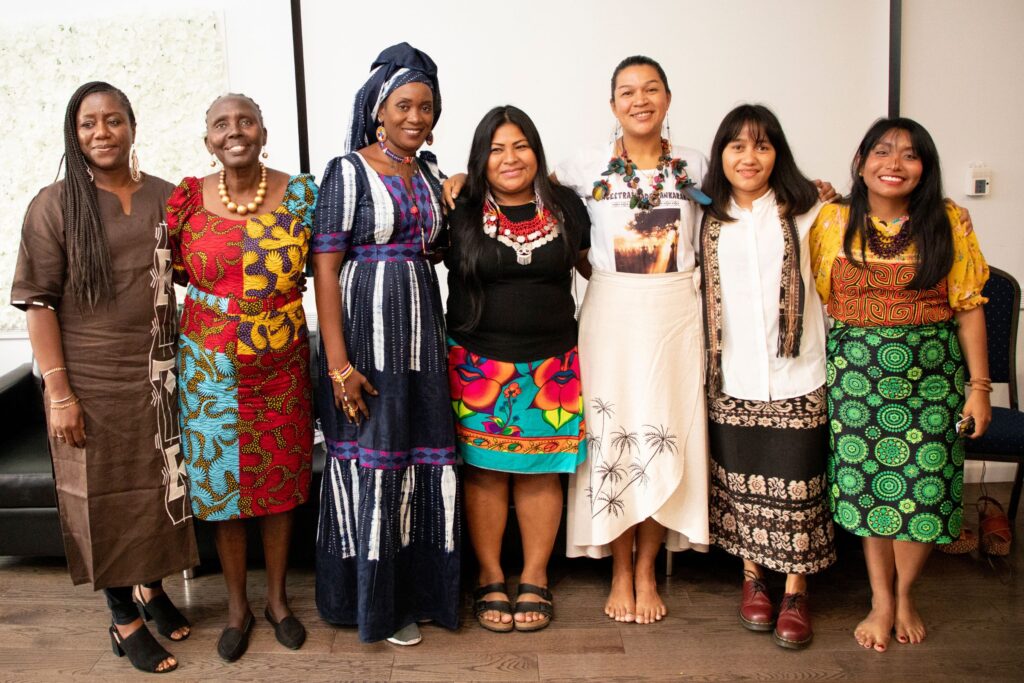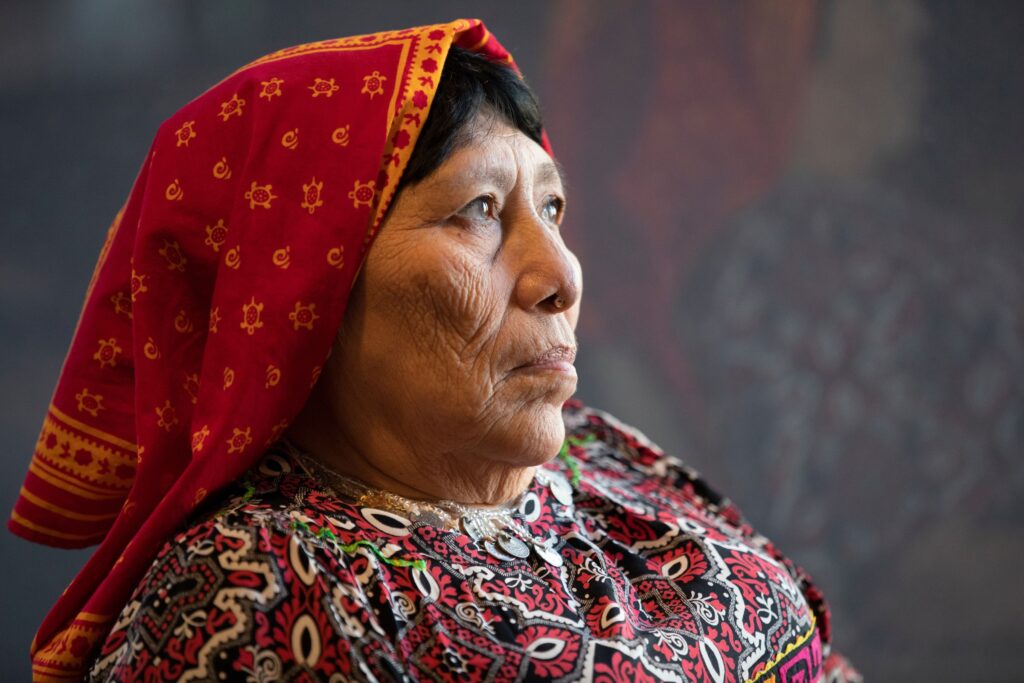Sônia Guajajara and Célia Xakriabá of ANMIGA elected to Brazilian National Congress. IMAGE CREDIT: @Leo.Otero
By Gloria Diez
- Indigenous women in tropical rainforests play a critical role in rainforest protection and face diverse challenges that have historically excluded them from participating in important decision-making and policy discussions.
- But women throughout Central and South America—and around the world—are uniting to fight for their rights and the health of the planet.
- Rainforest Foundation US (RFUS) has been supporting Indigenous women’s movements throughout their network to ensure sustainability and gender inclusion in all aspects of governance.
Indigenous women from rainforests around the world are uniting to fight for the health of the planet in their unique and powerful ways. Whether as activists, politicians, or mothers, they are bringing back ancestral knowledge and are determined to fight for their communities and the Earth. Despite their differences, they share a common goal and a united front.
Challenges faced by Indigenous women protecting the forests
Indigenous women in tropical rainforests play a critical role in rainforest protection as evidenced by higher levels of biodiversity, increased carbon storage capacity, and greater resilience to climate change in the rainforests they manage. And they face complex and diverse challenges, including struggling to secure land rights and having limited access to education and healthcare. They also suffer from high levels of discrimination and violence, including gender-based and sexual violence, as well as racism. Moreover, their exclusion from political decision-making and financial processes results in a lack of representation and resources to address their needs and concerns. But with 80% of Earth’s biodiversity in Indigenous lands, excluding women from these important conversations and policy discussions would be detrimental not only to their communities but to the planet.
Additionally, Indigenous women face the compounding effects of intersectionality of their circumstances. For instance, though Indigenous peoples play a pivotal role in rainforest protection, they receive less than 1% of climate finance as shown in a recent report, and a mere 0.2% of international philanthropic resources are allocated to women’s environmental initiatives. This missed opportunity perpetuates vast inequalities, hindering women’s ability to access appropriate resources for safeguarding the environment and creating a sustainable future.
Women throughout Central and South America are uniting to fight for their rights and the health of the planet.

Despite these obstacles, Indigenous women in tropical rainforests have become increasingly visible, politically engaged, and recognized for their roles in mitigating climate change and protecting biodiversity. They unite through Indigenous-led efforts at local, national, and global levels. And at all levels, they have demonstrated the strength of solidarity by working together to affect change in their communities and beyond.
For example, women leaders of the Global Alliance of Territorial Communities (GATC)—the world’s largest Indigenous Peoples’ and Local Communities’ coalition representing organizations from across the tropical belt, which is co-chaired by Rukka Sombolinggi, a Toraja woman from Indonesia and the first female Secretary General of the Indonesian Alliance of Indigenous Peoples of the Archipielago (AMAN)—have created a common agenda pushing for the inclusion of womens’ vision in climate decision-making and direct funding. Last year, the GATC’s women’s arm was highly visible, presenting at significant global climate and biodiversity events, including NYC Climate Week, COP15, and COP27.
GATC’s women’s representative, Sara Omi, selected as one of the most powerful women in Central America by Forbes, also holds a key role as president of the Coordinator of Mesoamerican Women Territorial Leaders (CMLT) of the Mesoamerican Alliance of Peoples and Forests (AMPB), a coalition of Indigenous Peoples and Local Communities that protect forests from Mexico to Panama. In addition, she is involved in the Association of Indigenous Emberá Women Artisans (AMARIE), working as an advisor to empower Emberá women economically through ancestral knowledge.

In Brazil, the National Articulation of Indigenous Women Ancestrality Warriors (ANMIGA) is a powerful and impactful network of Indigenous Women from various regions in Brazil, established following the First March of Indigenous Women in Brasília in 2019. Sônia Guajajara, one of the co-founders and leading figures of ANMIGA, recently shattered barriers in political representation by being appointed as the first-ever Minister of Indigenous Peoples under the government of Luiz Inácio Lula da Silva.
In Guyana, one of the most heavily forested countries in South America with an Indigenous population of almost 15%, insufficient awareness of women’s social issues and reproductive health is a pressing problem. Local organizations such as Surujani Williams’ Kato Village women’s group in the North Pakaraimas District Council, and Wapichan Wiizi Women’s Movement (WWWM) in the South Rupununi District Council (SRDC) offer targeted solutions through the provision of information, mental health support, workshops, and the promotion of women’s involvement in community development. WWWM also organized the first women’s conference last year. The coordinator, Immaculata Casimero, stated “my dream for women and girls is that they will be seen as equals to men and be respected.”
And in Mesoamerica, local associations of Indigenous women are focused on ancestral knowledge, such as Kábata Könana and Guna Women’s Network Bundorgan. The Kábata Könana Women’s Association in Costa Rica, honored with the United Nations Development Programme’s (UNDP) Equator Prize, established a Knowledge Weavers Network during the pandemic to revive Bribri and Cabecar traditional farming systems, trained over 100 families, and created an Indigenous Virtual Barter Fair to sell and exchange food, crafts, and conduct workshops. This circular economy system promotes food sovereignty, community development, and identity, making it an international reference for women’s empowerment. It also helps younger generations reconnect with their roots.
“I am begging on my knees to the world. Our mother is sick, help us recover this great woman who gave us life.”

The Guna Women’s Network Bundorgan in Panama revives ancestral knowledge. They planted medicinal gardens during the pandemic and enabled women’s participation in decision-making at the General Guna Congress. They also created the General Congress of Guna Women through which they further their agenda and organize to cultivate traditional foods. These achievements are immense considering women were only allowed to accompany men to the congress as recently as 10 years ago.
During NYC Climate Week in September of 2022, Briseida Iglesias, a Guna elder and international representative of the Network, made a heartfelt plea at the UNDP headquarters, “I am begging on my knees to the world. Our mother is sick, help us recover this great woman who gave us life.” She believes that if we act together, we can “dress mother earth in green.”
And Indigenous women in Peru participating in Rainforest Alert—an RFUS supported, community-led program aimed at preventing illegal deforestation—demonstrate strong support for one another. Numerous women have become a part of the initiative, citing their female trainers as a source of inspiration and their desire to set an example for their daughters as a motivating factor. Luz Montoya Ayambo, a Ticuna woman and a local monitor recently said of her involvement in the program, “It’s important for women to learn as much as we can so that we can get ahead and teach our communities about environmental issues that impact us. I did not know how to use a cell phone before for example, but now I am using computers and tech to help monitor our territory.” She encourages more women to become monitors because she firmly believes that “Women – we can!”
How RFUS supports this fight
Indigenous peoples are the best rainforest protectors. And women play an especially critical role in these efforts. Rainforest Foundation US is committed to ensuring their voices are heard and have developed comprehensive strategies for gender inclusion through consultation with our partners.
Indigenous women from rainforests around the world are uniting to fight for the health of the planet in their unique and powerful ways.
- In Peru, for example, we have integrated gender inclusion into the Rainforest Alert program. Measures like day care centers and food provisions create more equitable conditions for women to access learning spaces and to work as monitors and trainers. Kathya Castillo, Social Specialist at RFUS Peru, explains, “This set of actions is an ongoing process, responding to emerging problems and needs, to help women overcome internal barriers and make their work in defending their territory more visible.”
- In Guyana, we are working with women-led Indigenous organizations at the national level to reform policies that protect rights, advance land tenure security and foster sustainable livelihoods, and we are supporting the work of organizations like the SRDC’s Wapichan Wiizi Women’s Movement.
- And in Mesoamerica, we are extending support through B’atz, a collaborative project between RFUS, AMPB, and USAID, that is aiding the Coordinator of Territorial Women Leaders of Mesoamerica in formulating a regional gender plan. Mesoamerican women are promoting resilience through traditional practices, including traditional medicine and regenerative agriculture. The project is reinforced by data collection to develop a regional gender and climate change plan, supported by B’atz.
Inspired by Indigenous women warriors who pave the way for new generations to have their voices heard, we honor the legacy of the previous generations who fought for the rights of women to create a better future for all by protecting our planet.








